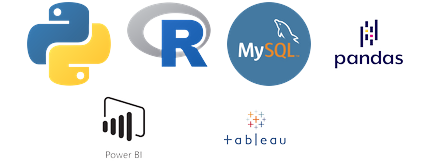By Rachit | IT Trainer | Career Strategist | Digital Project Manager
In my ten years as an IT trainer and career counselor, one question echoes louder than any other: “If I get this online certificate, will I get a job?”
As someone who both holds certifications and hires talent, I’ll give you the unvarnished truth. The short answer is no, a certificate alone is not enough. But when strategically leveraged, it becomes an incredibly powerful component of your professional arsenal. It’s the key that can unlock the door, but you still have to walk through it.
Let’s break down the reality, the value, and the strategy behind using online certifications in your job hunt.
The Hard Truth: What a Certificate Can and Cannot Do
✅ What a Certificate CAN Do:
- Validate Specific Skills: It provides third-party, verifiable proof that you’ve acquired a defined set of knowledge, especially in technical areas like Google Analytics, AWS Cloud, or PMP.
- Signal Initiative and Dedication: Completing a course shows recruiters you are proactive, committed to learning, and invested in your own professional development.
- Bridge Knowledge Gaps: It’s the most efficient way to quickly skill-up in a new domain, like data analysis or digital marketing, especially for career changers.
- Boost Your Resume’s ATS Score: Certifications are often keywords that Applicant Tracking Systems (ATS) are programmed to look for, helping your resume get seen by a human.
❌ What a Certificate CANNOT Do:
- Replace a Degree or Experience: It does not equate to a 4-year degree nor does it substitute for hands-on, practical experience. Employers hire for proven ability, not just proven knowledge.
- Guarantee an Interview: A certificate is a data point, not the entire story. Your resume, portfolio, and network are equally, if not more, important.
- Teach You Soft Skills: Certificates teach hard skills. They don’t teach you how to communicate, collaborate, problem-solve in real-time, or manage stakeholders—the critical soft skills that get you hired and promoted.
The Strategic Approach: How to Make Your Certificate Work For You
As a Digital Project Manager, I don’t just look for certificates on a resume; I look for the application of that knowledge. Here’s my actionable framework to ensure your certification investment pays off.
1. Choose the Right Certificate (The Rachit Filter)
Not all certificates are created equal. Before you enroll, ask:
- Industry Recognition: Is it from a reputable source? (e.g., Google, Microsoft, AWS, Coursera, edX, PMI).
- Relevance: Does it teach the exact skills demanded in the job postings you’re targeting? Use job descriptions as your guide.
- Rigor: Does it involve practical projects, exams, or hands-on labs? A certificate that requires you to build something is worth far more than one you get for just watching videos.
2. Build a Project-Based Portfolio (The Proof)
This is the most critical step. Your certificate says you know it; your portfolio proves you can do it.
- If you get a Google Data Analytics Certificate, don’t just list it. Build a GitHub portfolio with 2-3 projects. For example: “Used SQL and Tableau to analyze bike-share data and provide recommendations for marketing strategy.”
- If you get a PMP or Scrum Master certification, describe a project you managed (even a personal one) using those methodologies.
- If you get a Digital Marketing certificate, run a small campaign for a friend’s business or a personal blog and document the results.
Your portfolio is the story that gives your certificate meaning.
3. Optimize Your LinkedIn and Resume (The Marketing)
Integrate your certificate strategically:
- Headline: Include key certifications (e.g., “Aspiring Data Analyst | SQL | Tableau | Google Data Analytics Certified”).
- Featured Section: Add your certificate badges and link to your project portfolio on GitHub, Tableau Public, or your personal website.
- Skills Section: Add the skills the certificate validated and seek endorsements.
- Experience Description: Weave your learned skills into your job descriptions. “Applied Python for data automation, reducing report generation time by 20%.”
4. Network with Purpose (The Human Connection)
A certificate is a great conversation starter.
- Join LinkedIn groups and online communities related to your certification.
- When connecting with professionals, you can say: “I recently completed my AWS Solutions Architect certification and built a small cloud architecture project. I saw your profile and would be grateful for any advice on breaking into the field.”
- This demonstrates initiative and provides a tangible topic for discussion, moving beyond a generic connection request.
The Verdict: It’s a Powerful Tool, Not a Magic Bullet
Think of an online certificate not as a golden ticket, but as a skeleton key. It won’t open every door by itself, but it gives you the tools to craft the other keys you need: experience (through projects), proof (through a portfolio), and connections (through networking).
The Rachit Takeaway:
The job market is a competitive arena. An online certificate gives you a shield and a weapon, but you still have to win the battle. The most successful candidates are those who combine certified knowledge with tangible proof and strategic networking.
Your dream job isn’t hired based on a single line item on your resume. It’s hired based on the compelling narrative you build around your skills, and a well-chosen certificate is a pivotal chapter in that story.
– Rachit
Ready to strategize your upskilling journey? Connect with me for personalized career guidance.


